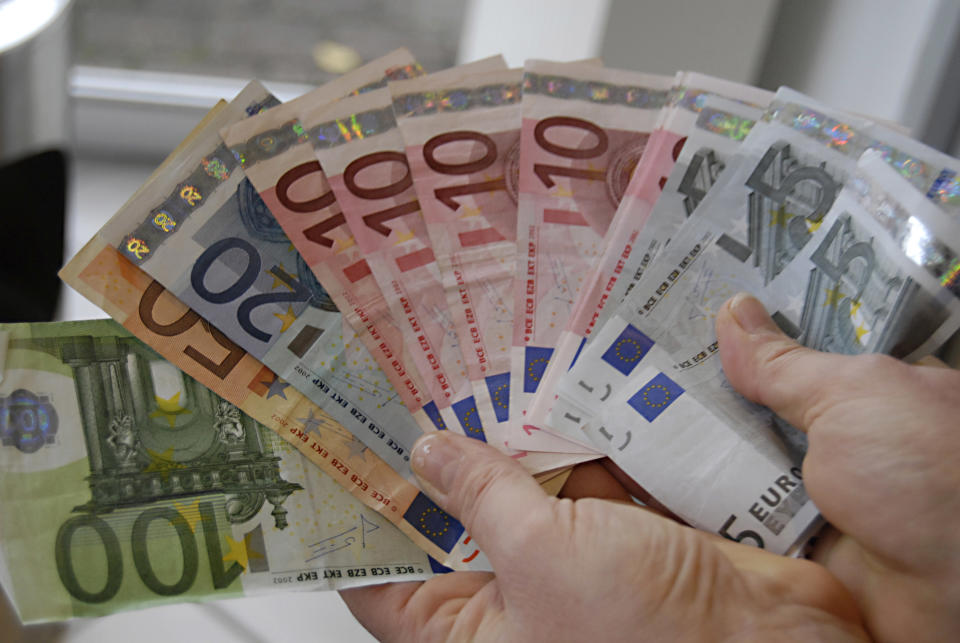'Pantomime villain' airport bureaux see British holidaymakers short-changed on euro rates

Holidaymakers are being warned not to leave getting their travel euros to the last minute after it was revealed airport bureaux de change are offering just 87 cents to the pound.
Ongoing Brexit worries coupled with stronger eurozone economic growth saw sterling slump to an eight-year low on Wednesday.
While on the currency markets, £1 buys €1.086, bureaux at airports are offering well under that.
MORE: Pre-paid card, debit or credit? These are the best ways to spend your cash overseas
Research compiled by travel money sites FairFX and Moneycorp showed the walk-up rate offered at Gatwick and Stansted was just 0.949 euros and 0.921, respectively, to the pound.
And at Southampton, customers were offered just 0.872 euros to £1. That means for every £100, holidaymakers would get just over €87.
One consumer expert described airport bureaux as “the pantomime villains of the summer”.
MORE: Travel websites to be held responsible for ALL aspects of your holiday
And the situation is unlikely to improve in the short-term. Kathleen Brooks, research director for City Index, told BBC Radio 4 Today: “We think the pound versus the euro could struggle into October when we’ve got the Tory Party conference and the threat of Theresa May potentially being ousted.
“If that goes smoothly we could see the pound start to recover but maybe not until into Autumn.”
It’s all a far cry from a little over a year ago, before the Brexit referendum sent sterling plunging in value against the world’s major currencies.
Back then, £1 would get you €1.315 whereas now it is a full 20% lower. It is a similar picture against the dollar where a year ago £1 would buy $1.47, it now commands just $1.28.
A spokesperson for FairFX said: “The pound firmly remains under pressure against both the euro and US dollar, amid continued Brexit talks which are seemly going nowhere.
“If no clear signals are given from the EU, the pound may continue to trade even lower in the coming weeks.”
MORE: Brexit economy: outlook positive but rocky negotiations could bring instability
Research by the website reveals that each year, a potential £94.3m is wasted by UK travellers exchanging money at the airport.
A review of 15 UK airports discovered the average difference between the market rate and the rate you’re offered at the airport for euros is 13%, with the worst offender at Southampton Airport using a margin of 26%.
In effect, for every £1,100 travellers exchange for euros at airports, they will miss out on about €102.
Simon Phillips, retail director at No1 Currency, said: “With no sign of significant relief against the euro, many [holidaymakers] will surely be considering travelling further afield to locations outside the eurozone, where the pound will likely go much further.
“Those still planning to head to Europe must be savvy and shop around to make sure they get the best currency deal and minimise the effect of the current foreign exchange markets.”
While the fall in value of sterling is bad new for holidaymakers, it’s good news for exporters.

 Yahoo Finance
Yahoo Finance 
